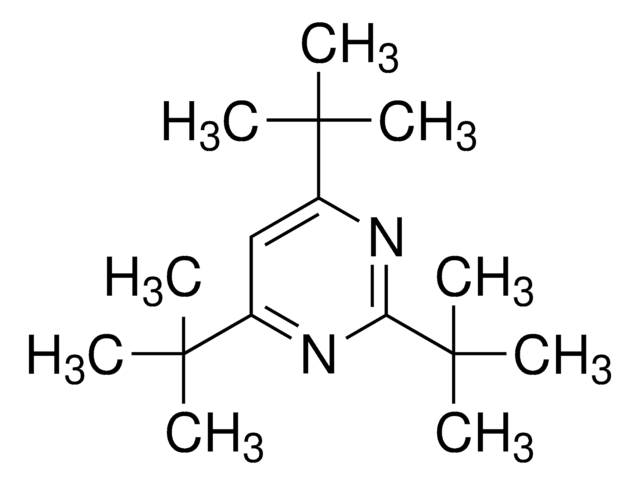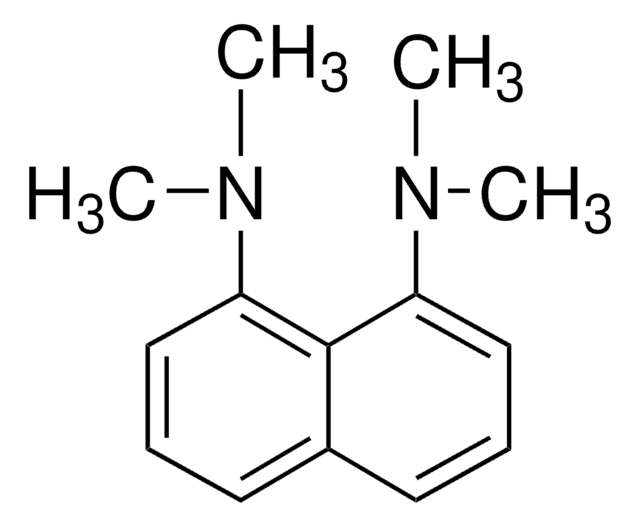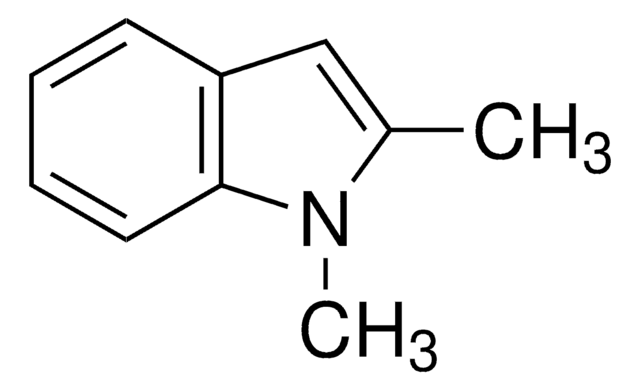249505
2,6-Di-tert-butyl-4-methylpyridine
98%
Synonym(s):
2,6-Bis(1,1-dimethylethyl)-4-methylpyridine, 2,6-Bis(tert-butyl)-4-methylpyridine, 2,6-Ditert-butyl-4-methylpyridine, 4-Methyl-2,6-di-tert-butylpyridine
About This Item
Recommended Products
Assay
98%
form
solid
refractive index
n20/D 1.4763 (lit.)
bp
233 °C (lit.)
mp
33-36 °C (lit.)
solubility
ethanol: soluble 5%, clear to slightly hazy, colorless to dark yellow
storage temp.
2-8°C
SMILES string
Cc1cc(nc(c1)C(C)(C)C)C(C)(C)C
InChI
1S/C14H23N/c1-10-8-11(13(2,3)4)15-12(9-10)14(5,6)7/h8-9H,1-7H3
InChI key
HVHZEKKZMFRULH-UHFFFAOYSA-N
Looking for similar products? Visit Product Comparison Guide
General description
Application
- in the synthesis of 1,2-dihydro-2-silanaphthalene derivatives
- as base in PtCl4-catalyzed cyclization reactions of homopropargyl azide derivatives
- diastereoselective synthesis of β-thiomannopyranosides
Signal Word
Warning
Hazard Statements
Precautionary Statements
Hazard Classifications
Acute Tox. 4 Oral - Eye Irrit. 2 - Skin Irrit. 2 - STOT SE 3
Target Organs
Respiratory system
Storage Class Code
11 - Combustible Solids
WGK
WGK 3
Flash Point(F)
183.2 °F - closed cup
Flash Point(C)
84 °C - closed cup
Personal Protective Equipment
Certificates of Analysis (COA)
Search for Certificates of Analysis (COA) by entering the products Lot/Batch Number. Lot and Batch Numbers can be found on a product’s label following the words ‘Lot’ or ‘Batch’.
Already Own This Product?
Find documentation for the products that you have recently purchased in the Document Library.
Customers Also Viewed
Our team of scientists has experience in all areas of research including Life Science, Material Science, Chemical Synthesis, Chromatography, Analytical and many others.
Contact Technical Service












